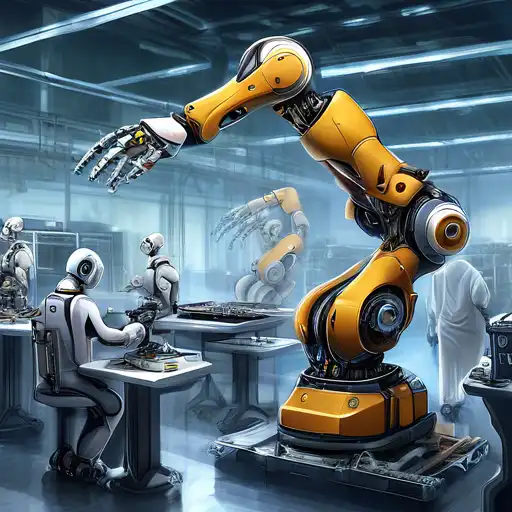The Revolutionary Impact of Robotics on Modern Manufacturing
In the heart of the industrial revolution, the introduction of robotics into manufacturing processes has marked a pivotal shift towards efficiency, precision, and scalability. This transformation is not just about replacing human labor but enhancing capabilities, reducing errors, and opening new avenues for innovation.
Understanding the Role of Robotics in Manufacturing
Robotics in manufacturing refers to the use of automated machines that can perform tasks with minimal human intervention. These tasks range from assembly, welding, painting, to packaging and palletizing. The integration of robotics has been a game-changer, offering unparalleled advantages in terms of speed, accuracy, and consistency.
Key Benefits of Robotics in Manufacturing
- Increased Productivity: Robots can operate 24/7, significantly boosting production rates.
- Enhanced Precision: With robotics, the margin for error is drastically reduced, ensuring high-quality outputs.
- Cost Reduction: Over time, the initial investment in robotics pays off through reduced labor costs and increased efficiency.
- Safety Improvements: Robots can handle hazardous tasks, reducing workplace injuries.
Real-World Applications of Robotics in Manufacturing
From automotive to electronics, robotics has found its place across various sectors. In the automotive industry, robots are used for assembling parts, painting, and even inspecting finished vehicles. Similarly, in electronics manufacturing, precision robots assemble tiny components with accuracy beyond human capability.
Challenges and Considerations
Despite the benefits, the adoption of robotics comes with its set of challenges. High initial costs, the need for skilled personnel to operate and maintain robots, and concerns over job displacement are significant considerations for businesses.
The Future of Robotics in Manufacturing
The future looks promising with advancements in AI and machine learning enabling robots to perform more complex tasks. Collaborative robots (cobots) are emerging as a solution that works alongside humans, combining the best of both worlds.
As we move forward, the integration of robotics in manufacturing is set to deepen, driven by the need for innovation and efficiency. The transformation brought about by robotics is not just changing how we manufacture but also shaping the future of work in the industry.
For more insights into how technology is reshaping industries, check out our articles on technology trends and the future of work.
